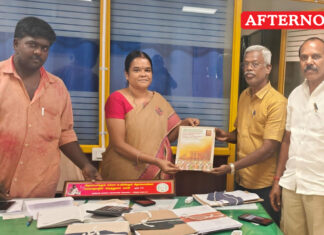The Nehru Group of Institutions (NGI), Tamil Nadu and Kerala, through its Technology Business Incubator (NGI TBI), organised the National Innovators Conclave 2025 at its Campus-2 in Coimbatore on Thursday. The conclave showcased innovative projects, promoted collaboration, and strengthened the entrepreneurial ecosystem.

The event was inaugurated in the presence of Adv. Dr. P. Krishnadas, Chairman and Managing Trustee, NGI, Chancellor of P.K. Das Deemed to be University, and Honorary Trade Commissioner of Mauritius to India. Dr. P. Krishnakumar, CEO and Secretary, NGI, and President of NGI TBI, presided. Mr. Arjun Prakash, President of TiE, was the Chief Guest, while Dr. H.N. Nagaraja, Executive Director (Academics and Administration), NGI, delivered the keynote address.
A major highlight was the signing of two MoUs. Magicmyna partnered with NGI TBI to accelerate innovation and entrepreneurship, while Finetech Auto Components Pvt. Ltd. signed to strengthen industry–academia linkages in the automotive sector.

The Innovation Showcase featured more than 35 projects in healthcare, environment, mobility, and technology. Among them were an IVD Device for Early Pancreatic Cancer Screening, developed under NGI TBI incubation, and the “K10 Highway Dust Cleaner” by Kaniskten N., a Grade 8 student of Advaita International School.
A Premium Masterclass drew over 70 participants from academia, startups, and industry. Sessions were led by Mr. Premkumar M., Governing Council Member, TiE Coimbatore, on Customer Value Innovation, and Ms. Anooja Bashir, Co-Founder and CMO, FlexiCloud, on Brands Power and Marketing Strategy.
At the valedictory function, Dr. V. Narayanan, Secretary, Department of Space and Chairman, ISRO, addressed students. He revealed that four astronauts had been selected for the Gaganyaan mission, with more under consideration at the request of Prime Minister Narendra Modi. He announced plans to establish an Indian space station by 2035 and a manned lunar mission by 2040.
Highlighting satellite demand, he said India requires 155 new satellites in the next three years, compared to 133 launched over the last five decades. He urged private investment in satellite development and praised India’s indigenous cryogenic engine technology, noting that past international denial had spurred self-reliance.
Dr. Ravinder Gaur, Scientist-E, Department of Science and Technology, was the Guest of Honour. Dr. B. Vaikundaselvan, Executive Director, NGI TBI, coordinated the arrangements.







